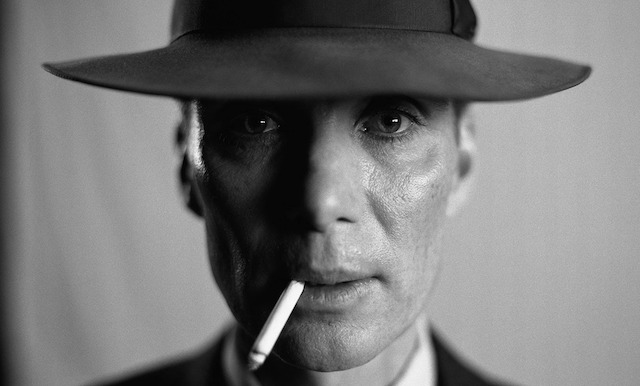
Oppenheimer : During World War II, Lt. Gen. Leslie Groves Jr. appoints physicist J. Robert Oppenheimer to work on the top-secret Manhattan Project. Oppenheimer and a team of scientists spend years developing and designing the atomic bomb. Their work comes to fruition on July 16, 1945, as they witness the world’s first nuclear explosion, forever changing the course of history.
Rating: R (Nudity|Language|Some Sexuality)
Genre: History, Drama, Biography
Original Language: English
Director: Christopher Nolan
Producer: Emma Thomas, Charles Roven, Christopher Nolan
Writer: Christopher Nolan
Release Date (Theaters): Wide
Release Date (Streaming):
Box Office (Gross USA): $326.1M
Runtime:
Distributor: Universal Pictures
Production Co: Universal Pictures, Atlas Entertainment, Syncopy, Gadget Films
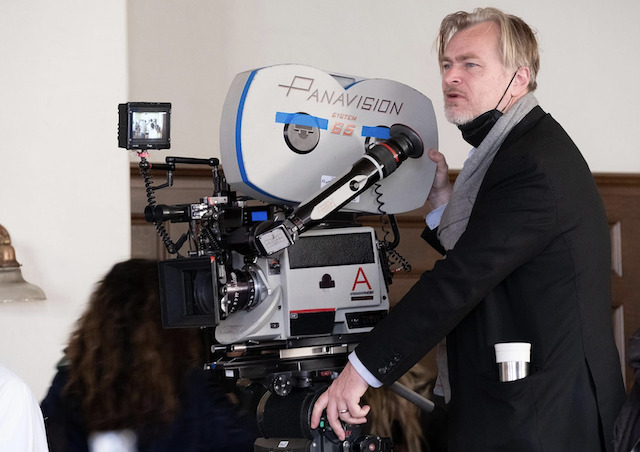 @Photo by Melinda Sue Gordon/Universal Pic/Melinda Sue Gordon – © Universal Pictures. All Rights Reserved.
@Photo by Melinda Sue Gordon/Universal Pic/Melinda Sue Gordon – © Universal Pictures. All Rights Reserved.
Press Conference with Director and screenwriter Christopher Nolan, actors Cillian Murphy, Emily Blunt, Robert Downey Jr., producer Emma Thomas, composer Ludwig Göransson.
Q : When did you decide to make a movie about J. Robert Oppenheimer?
Christopher Nolan : I came into the project with an interest in quantum physics, based mostly on working with Nobel Prize winner Kip Thorne, who I collaborated with on Interstellar and Tenet.
I was sort of predisposed to be interested in it, and that was one of the points of entry for the story because the shift in scientific thinking that Oppenheimer and his contemporaries were engaged in following on from Einstein’s theory of relativity was one of the most important paradigm shifts in any kind of human thinking.
That was definitely something I was interested in. Adapting American Prometheus, the great book by Kai Bird, I felt that my job was to be aware of the issues and try to make the audience see them. You want the viewers to feel like they know something about how radical the shift was and how powerful the change in thinking was.
Emma Thomas : Chris has long been interested in Oppenheimer. There’s actually a reference to him in Tenet. So I knew that this was something that he was interested in. And our partner Charles Roven brought us the book and said: “I think that this might be something that you guys should take a look at”. When we first started reading it I could see why Chris was interested in it, but I was also baffled as to how on earth he was going to be able to make a big and entertaining movie out of this huge book.
And I knew that that was going to be the biggest challenge. Gradually, as I was working my way through the book and he was talking about the things that he was going to do, it became clear what his vision was. So I became incredibly excited. And I think it was actually when he told me what he wanted to do with the end, that last line, that I really understood how this was going to work for an audience and what the hook was for a modern day audience.
So yeah, it was exciting in the way that all of our projects are at the beginning, where you’re leaping into the unknown and you don’t know how it’s going to go, but you know that you feel very passionate about the script and the story.
Q : Did you have any skepticism before accepting the role of Oppenheimer?
Cillian Murphy : No. I actually said yes before I read the script. It is always the case when Chris is kind enough to think of me for another part. I understood the significance of playing Oppenheimer. It’s like what Robert said: this story was so significant for all of humankind and for history.
You don’t get offered those sorts of parts that often in a career. So you just have to dive in. And when you’re working with a filmmaker like Chris it’s a no brainer, your mind immediately shifts into a sort of joy to work, because you know the clock is ticking until you start shooting. There was zero hesitation.
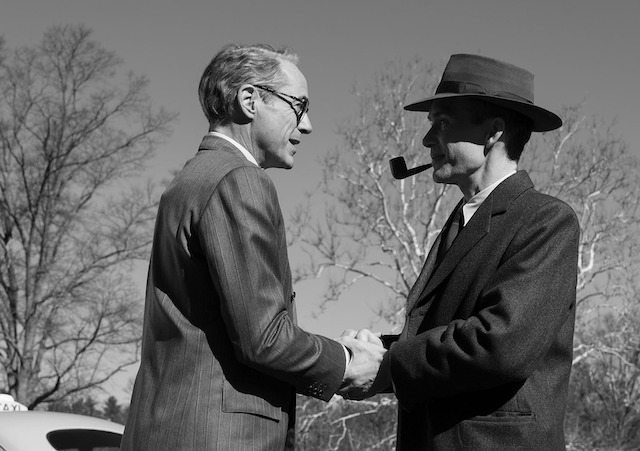 Photo by Melinda Sue Gordon/Universal Pic/Melinda Sue Gordon – © Universal Pictures. All Rights Reserved.
Photo by Melinda Sue Gordon/Universal Pic/Melinda Sue Gordon – © Universal Pictures. All Rights Reserved.
Q : How did you prepare for the role?
Cillian Murphy : What was really useful to me was reading about his early years, his formative years, his childhood, which we don’t really touch on in the film. That informed a lot of who he became later as an adult, and that was very, very interesting. Chris mentioned Kip Thorne, who sat in on lectures that Oppenheimer gave when he was a young man: it was fascinating to hear firsthand accounts of how he moved when he was delivering these lectures, how he held his pipe and stuff like that.
I absorbed all of that, it was just so helpful and useful for me in prep. But ultimately when you go to work, the script really becomes your main resource. All of that research that you absorb becomes in a sort of a subliminal secondary way because the script is always the most important resource you have.
Q : Which has been the most challenging aspect of shooting Oppenheimer?
Emily Blunt : Nothing about this experience felt arduous. I really ran to work. I found the whole thing so exhilarating. Maybe the challenge of any movie that you’re sort of popping in and out of is just to make sure you are tracking that through line and development of the character and the script with all of the interweaving narratives and intercutting.
I just wanted to make sure that I was tracking that in the right way. But to be honest, Chris tracked it as well. So I don’t remember going: “God, that was really challenging”. I just adored everything about it.
Cillian Murphy : I found a lot of it challenging, if I’m honest, but in the most exhilarating possible way. It was a big responsibility to try and embody this character, this icon who changed the world. But I knew when it was Chris at the helm that I was in the best possible hands. And I love a challenge.
That’s the sort of work that I’m drawn to, where I love the pressure. There was enough of that, but just the right amount. It felt like a very secure working environment. There was lots of room to experiment and to be curious, in that way it was constantly challenging, it becomes part of what’s motivating you and pushing you the whole time.
Robert Downey Jr. : If I had to really boil it down, it was just the weight of the historical significance and the timeliness of what we were doing. It felt like it was just such an important thing to get right, and particularly when we were shooting in the Institute for Advanced Study where these meetings and these events actually occurred. I guess we all felt the pressure of really trying to honor history.
Q : Has this movie been more difficult to put together than the previous ones?
Emma Thomas – Compared to some other films that we’d made in terms of what it was we were going to be shooting, it wasn’t quite as challenging. When I read the script for Inception for example I was far more worried about how on earth we were going to work on it. I think the big challenge with Oppenheimer was that it was a project that we really wanted to put out in the summer.
We wanted to reach an audience as large as possible, but it was also a three hour R-rated movie with such big ideas. We knew that we weren’t going to be able to spend as much money as one might want to spend on a script as ambitious as this. We shot in 57 days, which was a kind of very tight schedule, but in the end all worked in the best possible way.
The truth is we had such amazing people working on this film: from the crew who just as soon as we told them what was needed, they all just mucked in and figured out ways to do it as fast as possible. And of course I must include our amazing cast: we would not have been able to shoot Oppenheimer as fast as we did if they were not willing to just also commit and make it work. They didn’t go back to their trailers, they sat on set and waited for us to be ready. There’s no world in which we could have achieved what we did without their efforts.
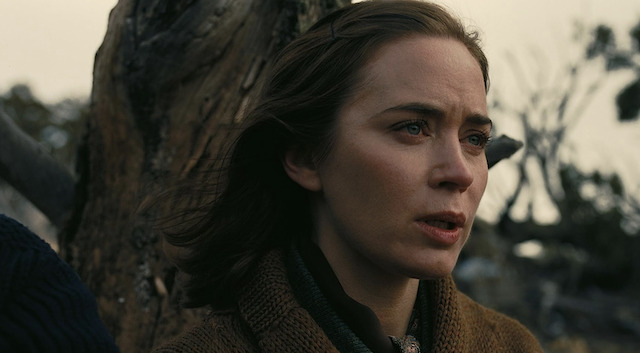
@Photo by Universal Pictures – © Universal Pictures. All Rights Reserved.
Q : What did you start to be involved in the project?
Ludwig Göransson – I’m one of the first people to read the script. Chris already had a very precise idea of the music and the sound of the movie, so we wanted to create something from scratch. He wanted to start off with the violin portraying Oppenheimer’s personality. The violin is a fretless instrument and can go from a beautiful tone with a soft vibrato to just depending on the player’s performance, it can change the vibrato slightly and make it sound neurotic or something horrific, it’s such a versatile instrument.
So we wanted to portray Oppenheimer’s feelings with that instrument and go between those emotions. I started writing a lot of music before they shot the film. So when Chris finished the shooting he already had about two or three hours of material. So we could listen to that during the shooting. When they started putting the movie together on the first edit, there was a sound world created for the movie. So everything was already custom tailored to the project.
Q : How were you able to assemble such a variety of actors in smaller roles?
Christopher Nolan – Since the very first draft of the script I decided not to write composite characters. So I left, whether it’s Louis Alvarez who was reproducing splitting the asset, I just left that be Louis Alvarez and not combine him with Robert Serber who gave lectures at Los Alamos.
And so when I brought John Papsidera, my casting director and told him we really needed unique faces, unique energies for all of these smaller parts. The multiplicity of people involved in the Manhattan Project is part of the significance of it, part of what I found really interesting about the history. So we really wanted this wide array of faces and personalities.
John has been my casting director since Memento, he’s just the best in the business and tapped it at all kinds of different young, exciting performers. He was able to put together the most amazing cast even in the smallest parts. For example you’ve got guys like David Krumholtz just killing it in every scene. We’ve just got wonderful actors.
For the scenes with lots of scientists like the GAC meeting that Lewis Strauss is chairing, we were really able to do a lot of improvisation. I was able to say to the guys: “Just get on, have an argument, throw anything in”. Dane DeHaan brought stuff to the table, Josh Hartnett did the same. It was a real privilege to be a part of. I really, really enjoyed it.
Q : How did you use the period costumes, hairstyle and props in order to understand your characters?
Robert Downey Jr. : The heads of departments were simply exceptional. I haven’t worked with costume designer Ellen Morojnick since Chaplin, she is incredible. But everything comes down to Chris and Emma Thomas who are really specific in crafting that part of the storytelling as well. And I just honestly, maybe more than ever before went along with the vision that I felt Chris was projecting.
I remember him saying that for a scene there had to be this yellow tide. And when someone is that clear about the specificity you kind of follow him, you don’t need to worry about too much, you just need to trust that there’s a vision there, and then you just fit into it and it definitely informs the way you move.
Emily Blunt : Yes, all teams were extraordinary. Chris immediately told me he hated wigs, so I was: “Got it”. There hasn’t been a single wig on the set, everyone changed their hair. I love the transformation of that. I find a lot of the work is interior out, and then occasionally you can find this amazing in when you put on a piece of clothing or shoes that affect your stance. It could be a prop, it could be nail polish, it could be any of that.
And suddenly you find yourself shapeshifting into this other person. And I just thought what Luisa Abel and Jamie Leigh Mackintosh did over the course of the aging process was astonishing. The fact that you could put an IMAX camera on their work and barely need to fix anything is astonishing. Yeah, I think that the morphing into somebody else’s skin can only be aided completely by our amazing costume and hair and makeup team.
Cillian Murphy : I worked a lot in terms of research, trying to discover how he spoke and walked and all of that. But then there was this other track that we were working on, myself and Chris and Ellen, I’d fly out to LA and we would test costumes and hats. Because Oppenheimer was very self-consciously creating this version of himself, he was self mythologizing from an early age, and you can see it in the film. So the hats and the pipe and the suits became essential to all of it. We had this extraordinary team and a director that has an incredibly clear vision. So it came together in the most brilliant way you could wish for.
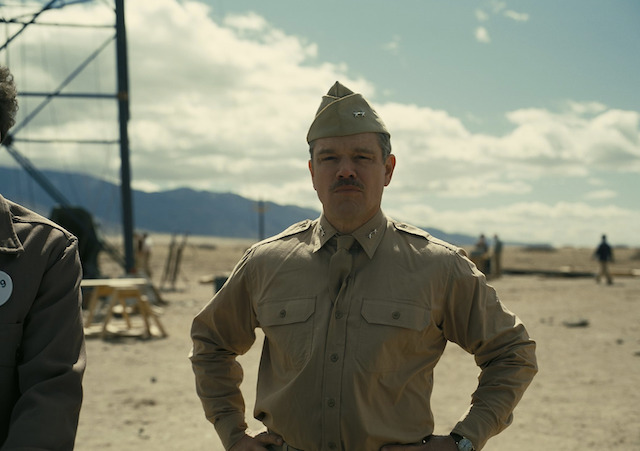 Photo by Universal Pictures – © Universal Pictures. All Rights Reserved.
Photo by Universal Pictures – © Universal Pictures. All Rights Reserved.
Q : How did the screenplay help you to create such a dramatic score?
Ludwig Göransson – So many of the details were in the script from the get go, like the sound of footsteps or the seconds of silence after the bomb at the Trinity test. I worked closely with Richard King from the Sound team, he was sending me some of the sound effects that were used on set, like the record of the feet stomps in that hall. And that was something I was able to bring into the music compositions.
I think using sound design in score makes you able to mesh those two worlds together in a very interesting way. And there’s definitely parts of the score in the film where the music completely shifts from going from something very tonal and musical to something completely sterile and just pure sound like, for example, when you see the bomb for the first time.
When you actually see the physical bomb, the music completely changes from going from orchestral to something very sinister and almost very sound designy, like a ticking clock or a heartbeat, like the nuclear reactor sounds.
Q : Oppenheimer talks about a recurring duality in your characters, split between what you are and what you must do. Why are you so attracted by this dilemma?
Christopher Nolan : I think I’m just attracted to films that center around human and flawed characters. I was always comfortable in the action movie world taking on the character of Batman more so than any other superhero because he’s recognizably human as well as very conflicted. But I think all of the protagonists I’ve taken on have different sides to them.
The fascination with Oppenheimer is that he’s a person whose public pronouncements weren’t necessarily in sync with the underlying behavior. So certainly on the issue of his feelings about the use of the atomic bomb, he never apologized.
He never made excuses. He always owned his part in what he would refer to as the technical success. But all of his actions post 1945 are those of somebody who felt a lot of guilt and a lot of awareness about how his invention changed the world in a dark way. And I think that’s a powerful protagonist to have at the center of a cinematic story.
Q : The movie is finally going to be released in Japan. What would you like the audience to take away from watching it?
Christopher Nolan : I am very pleased that people in Japan who are interested to see the film will be getting a chance. I’m also very glad that Universal is taking a very careful approach, being very mindful of the local sensitivities about the subject matter. But the film’s played everywhere else in the world, and so I think it’s appropriate that people who are into movies in Japan, people would be interested in seeing this work, they’ll have a chance next year.
Check out more of Adriano’s articles.
Here’s the trailer of the film.

